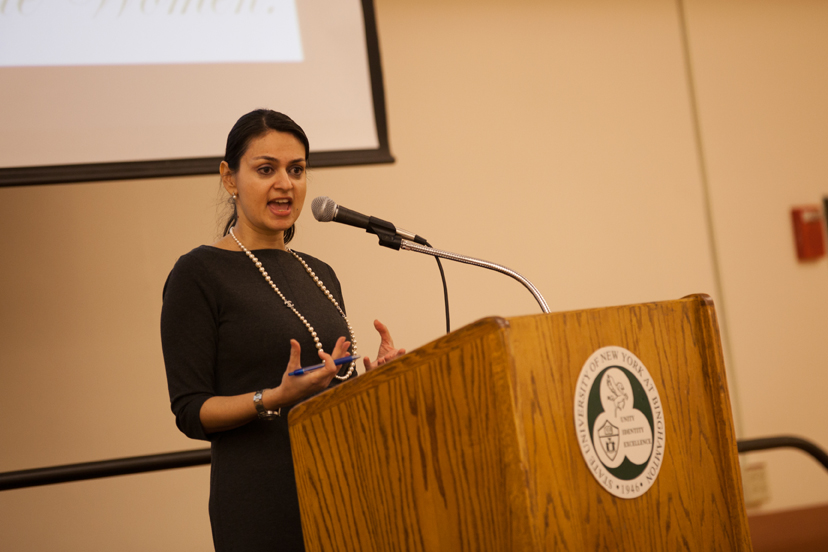
In celebration of National Women’s Day, Koula Sophianou, consul general to the Republic of Cyprus, spoke on the state of affairs for women in the world and how it has affected her career as a diplomat.
Sophianou said that growing up in Cyprus, the role of women, while always important, has changed drastically since 1974 when Turkey invaded and occupied one-third of Cyprus.
Many of Cyprus’ men, like Consul General Sophianou’s father, died in the war, pushing women into the workforce for the first time. These added responsibilities forced women to care for the financial, as well as emotional, well being of their families.
“Up until 1974, the women stayed at home [and] the men could bring home the money,” Sophianou said. “It was supposed to be a patriarchal society, but the women, in their own environment, they are actually the leaders of the family, because they had to sustain the family emotionally.”
Sophianou noted the stark differences between Cyprian and American feminists, which she said might be due to the relative equality Cyprian women experienced even before 1974.
“Its not your typical suffragette movement like you saw here in the early 20th century,” she said. “It is a totally different movement that started from economic reasons. That is when women realized that they needed to have autonomy in their finances.”
Sophianou said that coming from a country where she was valued as a woman, she never experienced the discrimination in the workplace that many other women face daily.
“The issue of being a woman was never a problem; I didn’t make it a problem either,” Sophianou said. “In your life when you have aspirations, and you have goals in your life, you need to focus on them and be sure of yourself.”
According to her, there are bigger things to consider in life than gender.
“It was never an issue that I was a women,” Sophianou said. “Why? Because in our world, the most important thing is to serve your country. It has nothing to do with being a woman or a man.”
However, she cautioned against painting all women with the same wide brush of equality.
“Sometimes we take for granted what we learn here in the Western world,” Sophianou said. “We really have to realize that even though in my experience, I never encountered any problems in my job being a woman, there are other parts of the world where women are having a difficult time.”
She said the global community needs to provide education to women in the developing world, so that they can in turn educate their daughters instead of sending them to foreign schools where they are far from their families and not contributing to the betterment of their native countries.
Sophianou also noted a need to promote and teach gender equality from a young age. She said that it is a “difficult world,” and when it comes to change, people need to start early.
“Gender involves both men and women,” she said. “It’s part of education, it comes from school, it’s a part of the socialization process.”
This message resonated with P.U.L.S.E. Vice President Shaneira Da Silva.
“I really like what she said about education, and using the tools that you have to help other people,” said Da Silva, a senior majoring in human development.
Kevin Guenthner, a senior double-majoring in sociology and human development, was impressed with the talk.
“I found her to be really inspiring, and really genuine,” he said. “Everything she said really hit home.”
Several organizations including Dorm Room Diplomacy and P.U.L.S.E. sponsored the event, held on Thursday evening in the Mandela Room.


